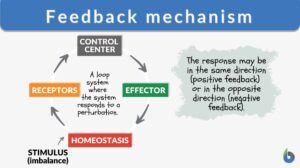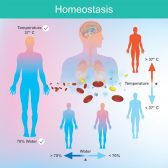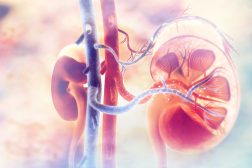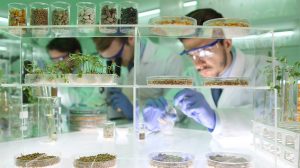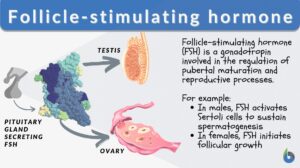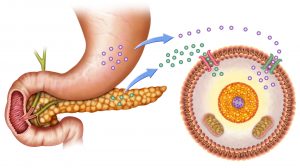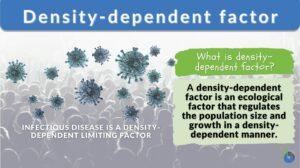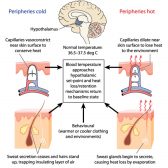Search Results for: feedback regulation
Feedback mechanism
Feedback Mechanism Definition What is a feedback mechanism? A feedback mechanism is a physiological regulation system in a... Read More
Positive feedback
Positive Feedback Definition Each mechanism of the body like temperature, blood pressure, and levels of specific nutrients... Read More
Feedback regulation
Feedback regulation (Science: physiology) control mechanism that uses the consequences of a process to regulate the rate at... Read More
Homeostasis
Homeostasis is the tendency not to stray from the range of favorable or ideal internal conditions. Such conditions must be... Read More
Negative feedback
Definition noun (1) A feedback in which the system responds to the perturbation in the opposite direction as the... Read More
Physiological Homeostasis
In animals such as ourselves, the internal environment of our bodies must have certain conditions within tolerable limits to... Read More
Principles of Hormonal Control Systems
Hormones are chemical messengers that enter the blood directly upon their secretion from endocrine glands. A single gland or... Read More
Homeostasis of Organism Water Regulation
Osmoregulation Osmoregulation is the regulation of water concentrations in the bloodstream, effectively controlling the... Read More
Equilibrium
Equilibrium Definition In Biology Equilibrium refers to the state of balance and stability. In biology, equilibrium is... Read More
Regulation of Biological Systems
Regulation of Biological Systems tutorials are focused on the modulation of biological systems from cell to population... Read More
Homeostatic Mechanisms and Cellular Communication
Homeostasis is the relatively stable conditions of the internal environment that result from compensatory regulatory... Read More
Autocrine signaling
Autocrine Signaling Definition What is autocrine signaling? Autocrine signaling is a type of cell signaling wherein a cell... Read More
Regulation of Organic Metabolism, Growth and Energy Balance
Organic Metabolism Events of Absorptive and Post-absorptive States. The absorptive state is the period during which... Read More
Endoplasmic reticulum
Endoplasmic Reticulum Definition The endoplasmic reticulum is a membrane-bound organelle in cells of eukaryotic cells... Read More
Follicle-stimulating hormone
Follicle Stimulating Hormone Definition In the pituitary gland of the brain, gonadotropic hormones are released.... Read More
Sugar Homeostasis
Blood Sugar Regulation As described in Cell Biology tutorials, the body requires volumes of glucose in order to create ATP.... Read More
Density dependent factor
Density-dependent factors are the limiting factors of an ecosystem that regulate population growth in a density-dependent... Read More
Temperature Regulation in Animals
Control of Temperature in Homeotherms Animals capable of temperature regulation within a given range are deemed homeotherms... Read More
Feedback control
Feedback control The regulation of the activity of an enzyme by one of its... Read More
Protein Activity and Cellular Metabolism
Protein Binding Sites The ability of various molecules and ions to bind to specific sites on the protein surface forms the... Read More
An introduction to Homeostasis
Researched and Written by Jonjo MinnsSubmitted to biologyonline.com on February 25, 2009.Published in biologyonline.com... Read More
Anticipatory control
Anticipatory control (Science: physiology) The regulation of a system or process based on anticipated events, this isa... Read More
Metabolism
Metabolism Definition What is metabolism in the body? Metabolism encompasses the various biochemical processes, reactions,... Read More
